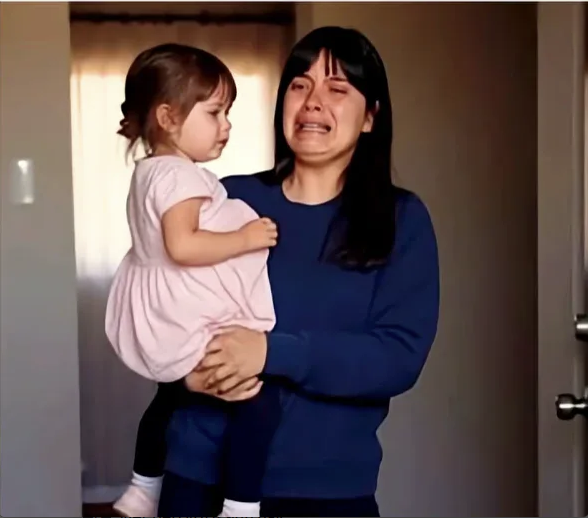
Sofia was standing in the hallway, trying to calculate the impossible. Daycare plus rent. Groceries plus utilities. Her daughter Emma in one arm, her phone in the other, doing math that wouldn’t work no matter how many times she ran the numbers. Single motherhood is full of these moments—the quiet desperation of trying to make everything fit when there’s simply not enough to go around.
Her neighbor, Don Alberto, was passing by when he overheard. An elderly widower who’d lived alone in the apartment next door for years. Most people barely noticed him. He kept to himself, quiet and unobtrusive, just another face in the building.
But Don Alberto heard Sofia’s struggle. And instead of walking past the way most people would, he stopped. “I’ll take care of Emma while you work,” he offered quietly. No big announcement. No expectation of gratitude. Just a simple solution to a problem he’d witnessed.
Then he added something that explained everything: “I’ve eaten alone every night since my wife died three years ago.”
Sofia didn’t know what to say. She was overwhelmed by the offer, by the vulnerability in his admission, by the unexpected kindness of a man she barely knew. But she said yes. Because she had to. Because there was no other option. And because something in his voice told her this would be good for both of them.
Don Alberto showed up that first day with Emma’s favorite cereal—he’d asked Sofia what it was—and balloons tied to the chairs. He treated Emma’s arrival like a celebration, turning his quiet apartment into a place where a little girl could feel welcome and loved. He read her stories, played simple games, made sure she was fed and safe and happy.
That evening, when Sofia came to pick Emma up, her daughter looked at Don Alberto with the kind of trust children only give to people who make them feel special. And then she asked the question that changed everything: “Can Don Alberto be my grandpa?”
Sofia’s eyes filled with tears. She looked at Don Alberto, this kind man who’d stepped into their lives for reasons that had as much to do with his loneliness as their need, and whispered, “I think he already is.”
The photo shows them together—Sofia holding Emma, both of them smiling despite the emotion on Sofia’s face. You can see the gratitude there, the relief, the recognition that what started as a practical arrangement has become something much deeper.
Don Alberto doesn’t eat alone anymore. He has Emma’s laughter filling his apartment, has Sofia checking in to ask how his day was, has a purpose that had been missing since his wife died. He went from being a lonely widower to being Grandpa—not by blood, but by choice, which is sometimes even stronger.
And Emma? She has a grandfather who shows up for her every day, who makes her feel seen and loved, who proves that family isn’t always the people you’re born to. Sometimes it’s the neighbor who overhears your mother struggling and decides to do something about it.
There are millions of people living alone right now, especially elderly people who’ve lost spouses and live far from family. And there are millions of single parents struggling to make it work without support. This story shows what could happen if we paid more attention to the people around us. If we listened when we overheard someone’s struggle. If we offered help not as charity but as connection.
Don Alberto could have kept walking. He could have minded his own business, stayed in his quiet apartment, continued eating dinner alone. But he stopped. He listened. He offered what he had—time, presence, the gift of not being alone.
And in doing so, he saved more than just Sofia’s childcare budget. He gave Emma a grandfather. He gave Sofia a support system. And he gave himself a reason to get up in the morning, to buy cereal, to tie balloons to chairs, to be needed and loved again.
Now neither of them eats alone anymore. And that changes everything.